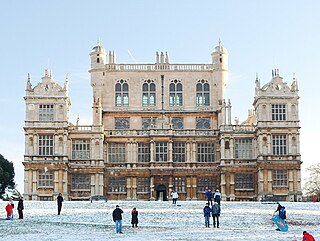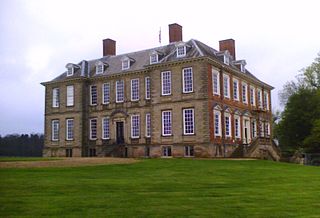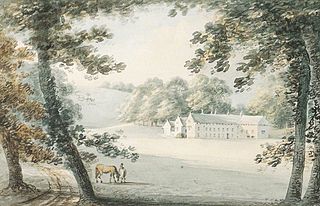
Francis Lewis (c.1692 – 3 March 1744) of Stanford Hall, Nottinghamshire was an English Member of Parliament.

Stanford Hall is a grade II* listed 18th-century English country house in Nottinghamshire, England, in Stanford on Soar just north of Loughborough. It is home to the Defence and National Rehabilitation Centre (DNRC).
He was the eldest surviving son of the merchant Thomas Lewes (died 1696) and educated at Trinity College, Oxford, matriculating in 1707 at the age of 15. He also attended New College, Oxford where he was awarded BCL in 1709. He succeeded his grandfather c.1702, inheriting Stanford Hall.

Trinity College is one of the constituent colleges of the University of Oxford in England. The college was founded in 1555 by Sir Thomas Pope, on land previously occupied by Durham College, home to Benedictine monks from Durham Cathedral.

New College is one of the constituent colleges of the University of Oxford in the United Kingdom. Founded in 1379 by William of Wykeham, the full name of the college is St Mary's College of Winchester in Oxford. The name "New College", however, soon came to be used following its completion in 1386 to distinguish it from the older existing college of St. Mary, now known as Oriel College.
He was appointed High Sheriff of Nottinghamshire for 1713–14 and also returned unopposed as MP for East Retford in a by-election in April 1713 and elected again in a general election later the same year.
The High Sheriff is the oldest secular office under the Crown. Formerly the High Sheriff was the principal law enforcement officer in the county but over the centuries most of the responsibilities associated with the post have been transferred elsewhere or are now defunct, so that its functions are now largely ceremonial. The High Sheriff changes every March.
East Retford was a parliamentary constituency in Nottinghamshire, which elected two Members of Parliament (MPs) to the House of Commons for the first time in 1316, and continuously from 1571 until 1885, when the constituency was abolished. Although East Retford was technically a parliamentary borough for the whole of its existence, in 1830 its franchise had been widened and its boundaries had been extended to include the whole Wapentake of Bassetlaw as a remedy for corruption among the voters, and from that point onward it resembled a county constituency in most respects.
He died in 1744 and was buried in Stanford-on-Soar churchyard. He had married Sophia, the daughter of Sir Samuel Dashwood. They had two sons and a daughter. His son Charles succeeded him.









